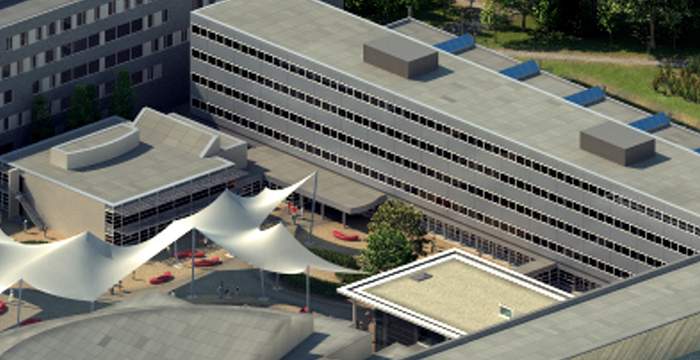Jeroen Klein Brinke finished his B.Sc in Technical Computer Science at the University of Twente (part of the first wave of TOM students) in 2016 with research being done in wireless sensor networks (flexible sensors in sports applications). In 2018, he received his M.Sc. (cum laude) in Technical Computer Science (specialization: Wireless and Sensor Systems) with research in deep learning and device-free sensing. In June 2024, he successfully defended his PhD dissertation entitled "Interwoven Waves: Enhancing the Scalability and Robustness of Wi-Fi Channel State Information for Human Activity Recognition" (link) at the University of Twente.
His research focuses on progressing joint communication and sensing in Wi-Fi applications for human health-care (and beyond), by actively doing research into channel state informaton-based device-free sensing in human activity recognition for health care, but areas of interest also include animal monitoring and smart cities. Current research focuses on employing WiFi 6E (and the new 6 GHz frequency) and many realistically-placed IoT devices, over specifically placed and less scalable solutions (in order to reduce future e-waste from niche solutions). Other areas include exploring, adapting, and implementing input-agnostic and scalable solutions in real-life settings for channel state information using deep and federated learning. Additionally, he is also actively increasing his knowledge in antenna design and radio-wave/signal propagation in general.
Starting September 2023, he started as the coordinator for M2 Creative Technology (Smart Environments), lectured the core of Smart Environments, and supervised the Project of M2 at the Vrije Universiteit Amsterdam in a collaboration between the UT and VU. From July 2024, he is an assistant professor at Pervasive Systems (EEMCS) in Joint Communication and Sensing and will facilitate M8 Creative Technology (VU).
Between 2019 and 2022, he was actively involved in his old Bachelor programme, B-TCS, as a mentor (the Housekeeper initiative) for first-year students and participating as a lecturer and supervisor in multiple BSc courses, functioning as the Head of Housekeepers between 2020-2022. Since 2019, he also actively organizes the M.Sc. course Pervasive Computing, formally known as Ubiquitous Computing, at the University of Twente.
Expertise
Computer Science
- Channel State Information
- Human Activity Recognition
- Wi-Fi
- Convolutional Neural Network
- Activity Recognition
Earth and Planetary Sciences
- State
- Recognition
- Human Activity
Organisations
Publications
2026
2025
2024
2023
Research profiles
Affiliated study programs
Courses academic year 2025/2026
Courses in the current academic year are added at the moment they are finalised in the Osiris system. Therefore it is possible that the list is not yet complete for the whole academic year.
- 192199508 - Research Topics CS
- 192199968 - Internship CS
- 192199978 - Final Project CS
- 201400171 - Capita Selecta ST
- 201600227 - Internship for CreaTe
- 202001613 - MSc Final Project BIT / CS
- 202100240 - Smart Environments Core
- 202302021 - Smart Environments Core
- 202302023 - Interactive Visualisation
- 202302024 - Professional Development M2 VU
- 202400648 - HbD: Dangerous Design
- 202402087 - HbD: Dangerous Design
- 202402088 - Professional Development M8 VU
- 202500030 - Supplementary Topics CreaTe
- 202502022 - Introduction to Engineering
Courses academic year 2024/2025
- 192199508 - Research Topics CS
- 192199968 - Internship CS
- 192199978 - Final Project CS
- 201400171 - Capita Selecta ST
- 201600227 - Internship for CreaTe
- 201800524 - Research Topics EIT
- 202001613 - MSc Final Project BIT + CS
- 202100244 - Pervasive Computing
- 202300151 - Supplementary Topics CreaTe
- 202302021 - Smart Environments Core
- 202302022 - Introduction to Engineering
- 202302023 - Interactive Visualisation
- 202302024 - Professional Development M2
- 202402081 - Hybrid Worlds Project
- 202402082 - Internet Technology
- 202402083 - Data Visualisation
- 202402084 - Data-driven Applications
- 202402085 - ST: Sensor Technology in Sports
- 202402086 - IM: Sound Design for User Interaction
- 202402087 - HbD: Dangerous Design
- 202402088 - Professional Development M8
- 202502022 - Introduction to Engineering
Address

University of Twente
Zilverling (building no. 11), room 5005
Hallenweg 19
7522 NH Enschede
Netherlands
University of Twente
Zilverling 5005
P.O. Box 217
7500 AE Enschede
Netherlands